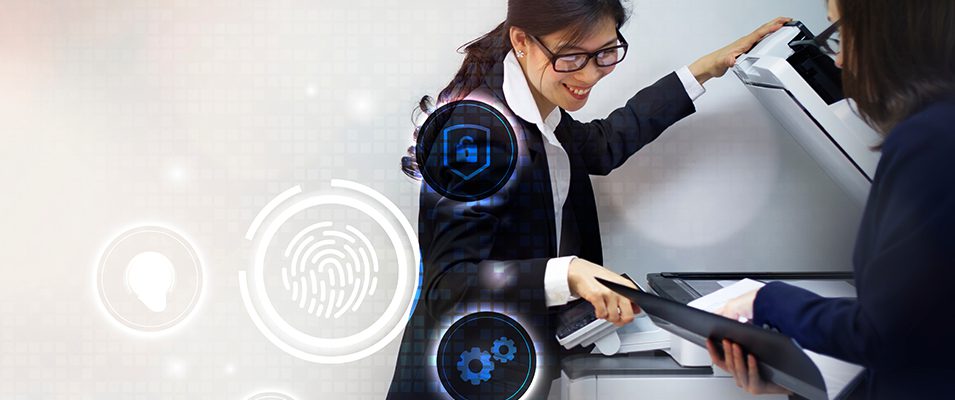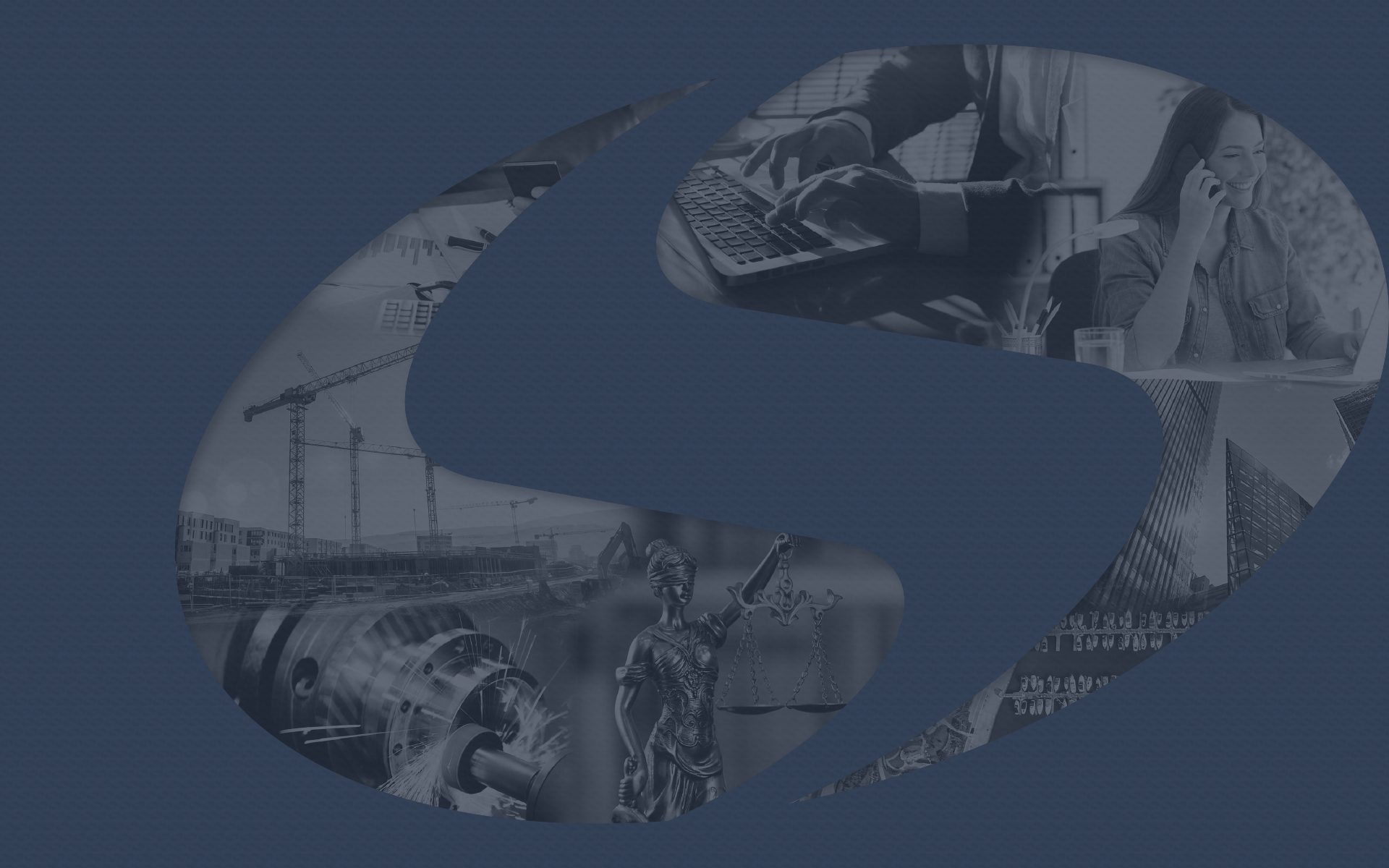
02 Mar Understanding Copier Data Security
Copier Data Security: A Guide for Businesses
Protecting sensitive information is more critical than ever as our world becomes increasingly digital every day. Whether your company handles Social Security numbers, credit reports, account numbers, health records, or proprietary business secrets, safeguarding this data is essential for legal compliance and maintaining customer trust. While many businesses focus on securing computers, mobile devices, and paper documents, one often overlooked aspect of information security is the office’s digital copier. Believe it or not, copy machines store information in their hard drives that cybercriminals can hack into to steal information.
Most likely, businesses are unaware this is possible, making this cyber threat a surprisingly big target for criminals and unauthorized users. However, we at Sunwest Bank understand the complexities and risks associated with digital copiers. We are committed to providing our clients with the knowledge and tools to protect their data.
Digital Copiers: The Unseen Security Risk
Digital Copiers are Computers
Modern commercial copiers have evolved significantly from the old copiers once used, transforming into networked multifunction printers and copiers. These machines now often require a network connection and can copy, print, scan, fax, and email documents, relying on hard disk drives (HDDs) to manage workloads and enhance production speed. Unlike personal or home office copiers, business-grade digital copiers come equipped with HDDs that store sensitive information and data from every document they handle. This data can include sensitive information that, if not adequately protected, can be accessed and stolen, putting the business’s and employee’s confidential information at risk.
The Life Cycle of a Copier
Many copiers and printers have a lifecycle that typically involves leasing, returning, and leasing again or selling. Each stage of this lifecycle presents unique security challenges. It’s crucial to incorporate data security measures from the moment you acquire a copier until you dispose of it. Sunwest Bank advises businesses to consider these security measures at every stage of the copier’s life:
- Before Acquisition: Integrate copiers into your organization’s information security standards. Ensure your IT staff is responsible for securing computers and servers and also manages copier security.
- During Acquisition: Evaluate and choose copiers with robust security features. Look for options like encryption and overwriting, which are either standard or available as add-ons. These features help protect the data stored on the copier’s HDD.
- While in Use: Utilize the copier’s security features, such as regularly overwriting the HDD to erase data. Ensure your IT staff securely integrates networked copiers and protects them from external threats.
- End of Use: Ensure the HDD is properly secured when disposing of or returning a copier. This may involve removing and destroying the HDD or using services that overwrite the data for you.
Securing Data on Digital Copiers
Encryption and Overwriting
Encryption
Encryption involves scrambling data using a secret code, making it unreadable without the appropriate software. Copiers with transport layer security (TLS) printing and encryption capabilities protect stored data even if the HDD is removed. This layer of security ensures that sensitive information remains confidential.
Overwriting
Overwriting, or file wiping, replaces existing data on the HDD with random characters, erasing the original data. This process is different from merely deleting or reformatting data, which leaves the information retrievable. Depending on the copier, overwriting can be set to occur after every job, periodically, or on a preset schedule. The more times data is overwritten, the more secure it becomes.
Additional Security Measures
Copiers can also be secured by locking the HDD with a passcode, ensuring data protection even if the HDD is removed. Also, consider managed print services (MPS), such as Xerox, which manages an organization’s copier and printer needs under a single program that offers process optimization, a protected print server, and security, amongst other benefits. Businesses should also plan for data disposal, ensuring lease agreements state that the company retains ownership of HDDs at end-of-life or that the provider will securely overwrite the HDD.
Best Practices for Using Digital Copiers
Regular Overwriting
Overwriting a hard drive disk involves wiping the data from it which can, of course, prevent anyone from accessing it. While securely overwriting the entire HDD at least once a month is a best practice, be cautious as to what data is being wiped so you can take measures to keep any data your company may need that isn’t already stored elsewhere. This routine maintenance helps prevent security breaches when unauthorized access is granted to stored data.
Network Security
Networked copiers must be protected against outside intrusions and attacks like computers and servers. Ensure your IT staff securely integrates copiers within your network and implements protections against unauthorized access. As mentioned, TLS is a good way to do this.
Awareness and Training
Educate your employees about the security features of digital copiers, the importance of protecting sensitive data, and the necessity of keeping the machine up to date by performing software updates as soon as they become available, as they typically improve security. Place stickers or placards on copiers to remind users about the security risks and proper procedures for disposing of the device.
If you feel it’s necessary for your office, restrict access to the copier with a PIN code so only certain team members can make copies. This typically isn’t necessary as long as the IT team is aware of the proper copier and printer security measures, but it can add an additional layer of protection.
Disposal of Digital Copiers
Options for Securing the Hard Drive
When it’s time to dispose of or return a digital copier, consult with the manufacturer, dealer, or servicing company about options for securing the HDD. They may offer services to remove, return, or overwrite the HDD. While these services may come at an additional cost, they are essential for maintaining data security.
Removing an HDD yourself can be risky, as it may contain essential firmware that enables the copier to operate. Additionally, HDDs can be difficult to locate, and some copiers have multiple HDDs. Working with skilled technicians, who you have vetted and trust, is generally advisable to avoid rendering the copier inoperable, especially if you are leasing the device.
Legal Responsibilities
FTC Standards
The Federal Trade Commission (FTC) requires businesses to maintain reasonable procedures to protect sensitive information. What constitutes “reasonable” depends on the size and nature of your business, the types of information you handle, and the available security tools. Businesses must do their research, consider these factors, and implement appropriate measures to protect data on digital copiers.
Specific Compliance Obligations
Depending on the information your business handles, you may have specific legal obligations. For example, financial institutions must comply with the Gramm-Leach-Bliley Safeguards Rule, which mandates a security plan to protect personal consumer information, including data stored on digital copiers. Similarly, businesses that handle consumer information must follow the Disposal Rule, which requires proper disposal of confidential information, whether stored on paper, computers, or digital copiers.
Sunwest Bank: Your Partner in Copier Security
At Sunwest Bank, we want to help you on your way to enhanced data security in every aspect. Our experts are dedicated to helping you navigate the complexities of copier security, ensuring your information remains protected throughout the copier’s lifecycle.
Digital copiers are vital to modern business operations, but they also pose significant security risks. You can protect sensitive data and prevent costly data breaches by incorporating robust security measures, regularly maintaining your copiers, and staying informed about legal obligations. Trust Sunwest Bank to be your helping hand in cybersecurity, offering the expertise and support you need to keep your information safe.




